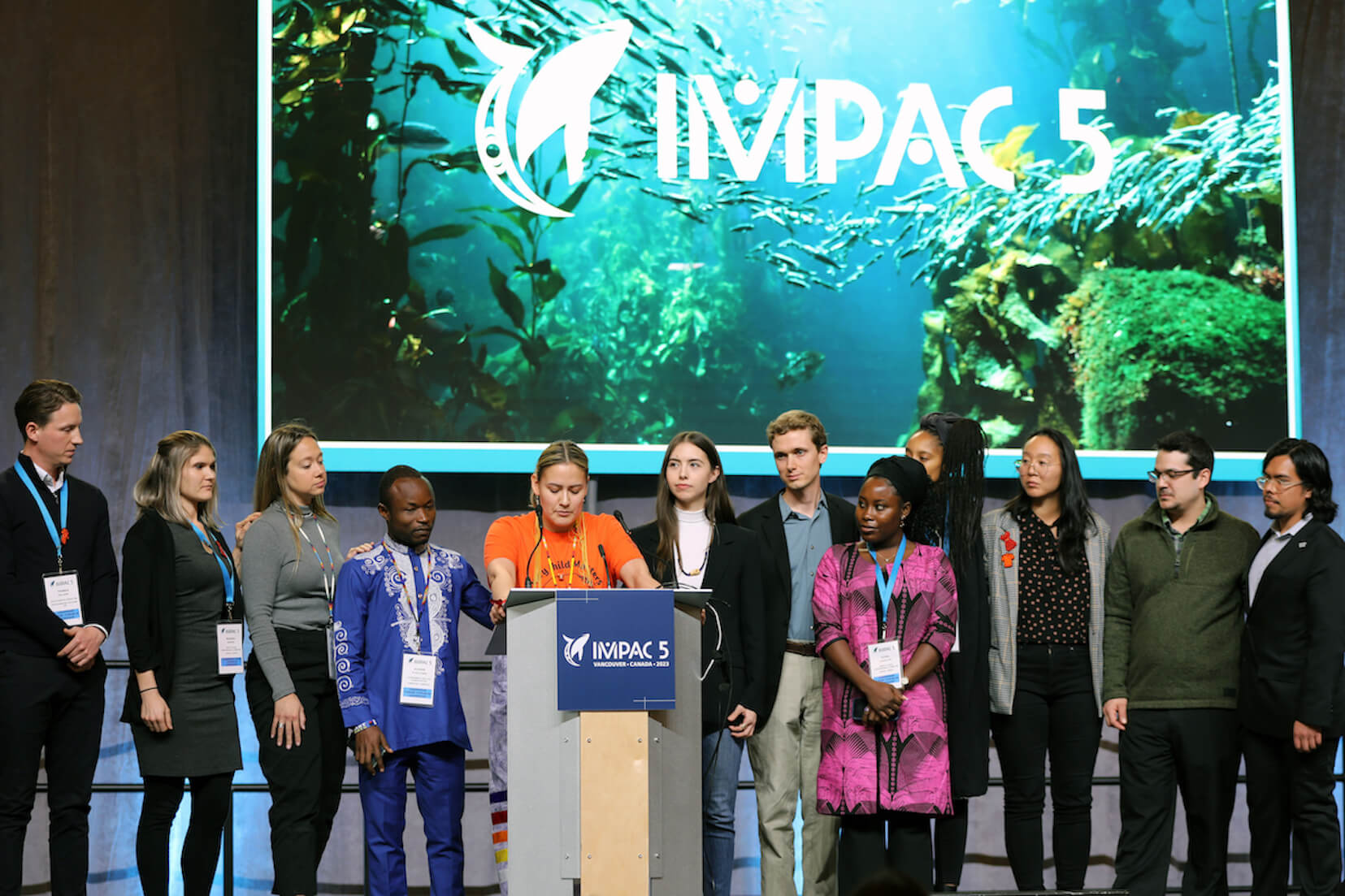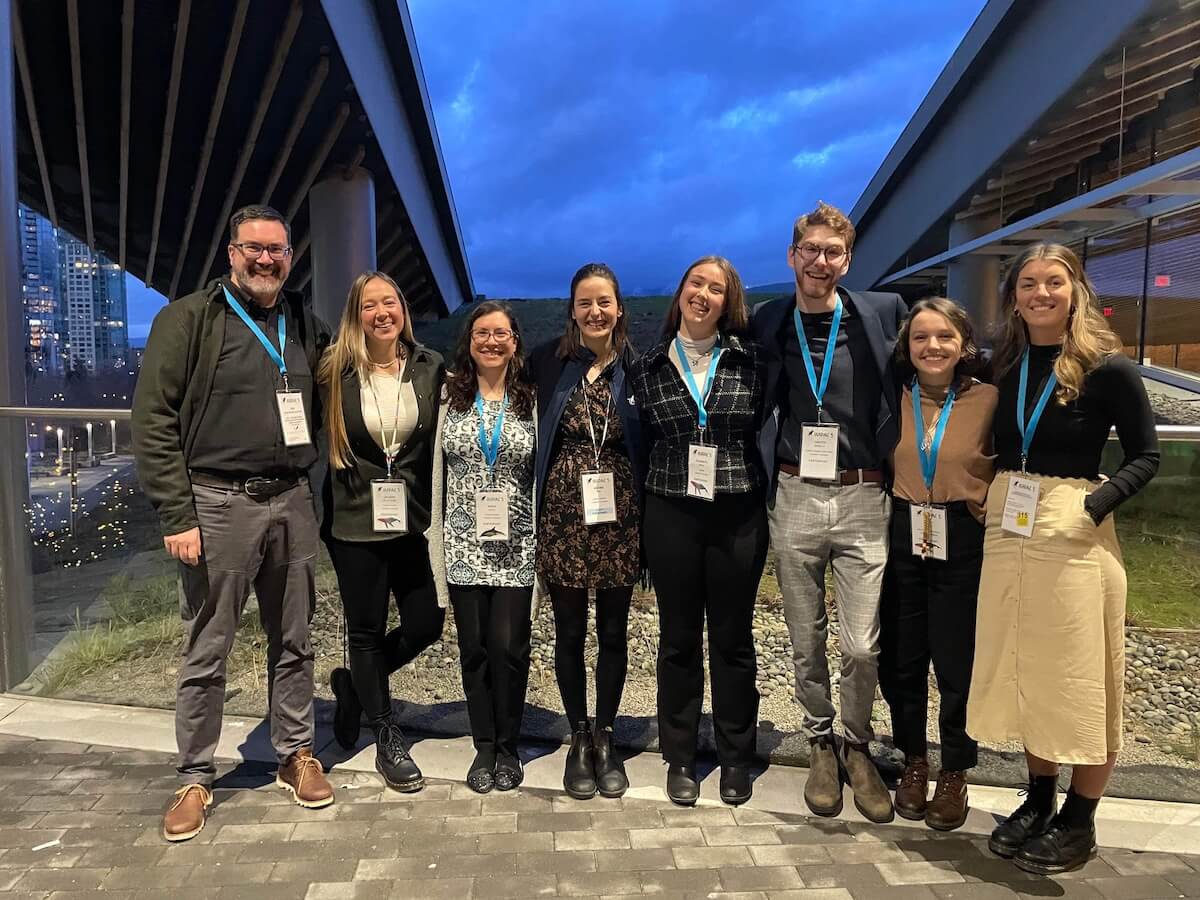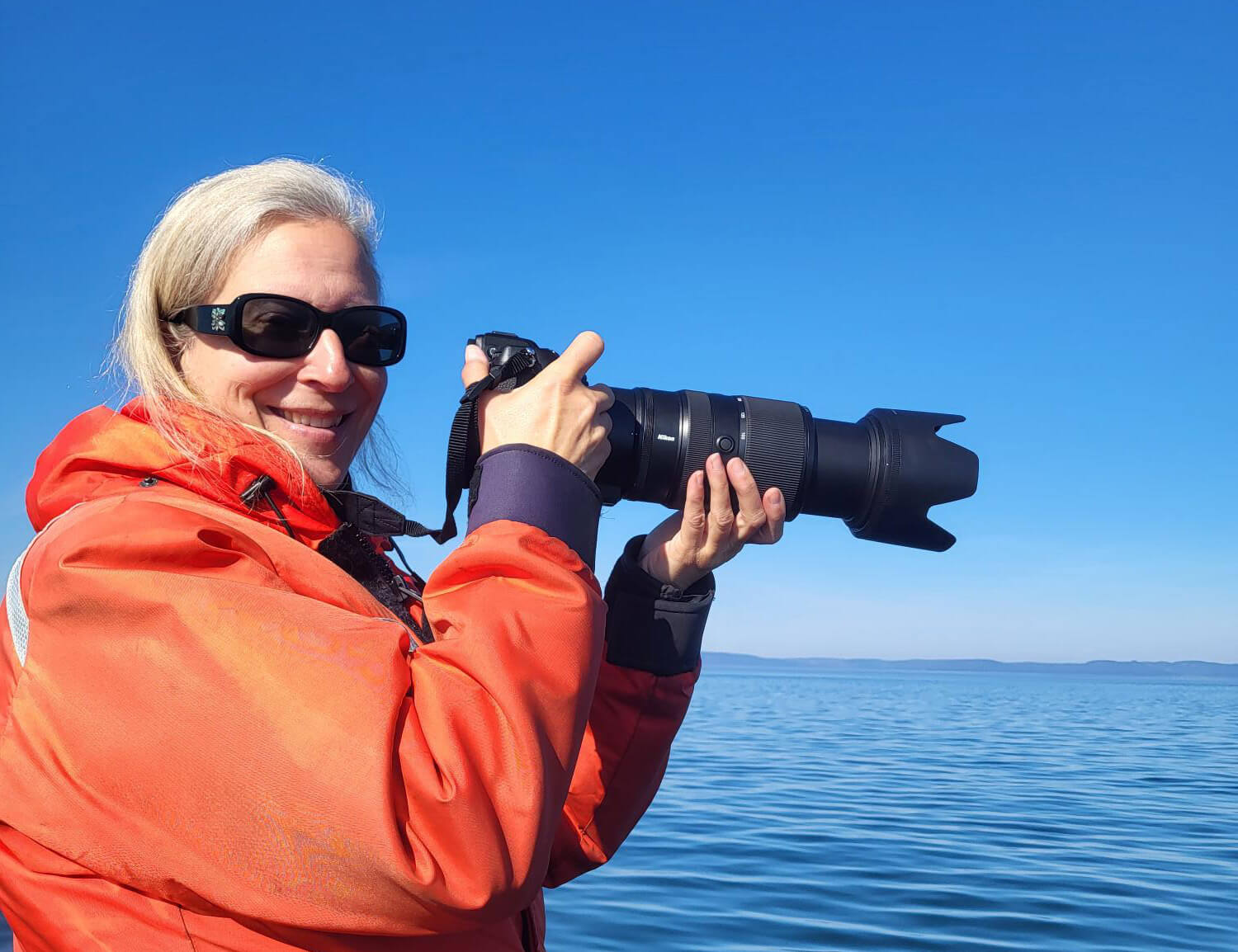From February 3 to 9, the Fifth International Marine Protected Areas Congress, IMPAC5, was held in Vancouver. The event was organized by the Government of Canada, together with three Host First Nations – xʷməθkʷəy̓əm (Musqueam), Sḵwx̱wú7mesh (Squamish), and səlilwətaɬ (Tsleil-Waututh) – and in partnership with the Canadian Parks and Wilderness Society and the International Union for Conservation of Nature (IUCN). Its purpose was to bring together managers, researchers, students and decision-makers working in the marine conservation community – especially those involved in marine protected areas (MPAs) – to exchange knowledge, experiences and best practices to enhance the conservation of marine biodiversity as well as protect the natural and cultural heritage of the ocean. Thanks to Parks Canada, I had the chance to attend the conference and present a workshop on ecological grief with other young professionals working in the field of marine conservation.
Each day of the conference began with presentations from three guest speakers. We had the opportunity to hear from Asha de Vos, Dr. Daniel Pauly, ‘Aulani Wilhelm, Michael Vegh, Sylvia Earle, Britt Wray, Titouan Bernicot and Cristina Goettsch Mittermeier, all of whom are passionate, inspiring people who innovate in their respective fields. Some speakers related their debuts in the field, while others presented their current projects, but every presentation had one common denominator: the future of our oceans. Several speakers made reference to the commitment signed at COP15 in December 2022: to protect 30% of the planet and 30% of degraded ecosystems by 2030. The latter was often mentioned as a goal for coming years, but without ever being the ultimate objective. ‘Aulani Wilhelm reminded us that if we truly want to protect our oceans, we must adopt a more ocean-centric worldview and treat them as the life sources they are.
The St. Lawrence in Vancouver
Over the days, I attended presentations on a variety of topics: the renewal of ancestral travel routes in the West Pacific to stimulate knowledge on biodiversity and climate change, the mobilization of our youth to support conservation actions, social equity in marine conservation and the creation of a network of marine protected areas (MPAs) in the St. Lawrence. The latter was one of my favourite presentations, especially because the subject was very timely, but also because the speakers were all from Quebec. It was truly inspiring to see these women on stage talking about our St. Lawrence in front of an international audience.
The speakers began by providing an overview of the MPA network. In this case, the term “network” does not mean that the MPAs are all interconnected, but rather that they adequately protect the diversity of the St. Lawrence. To do so, the network of MPAs must be well distributed ecologically and geographically so that a representative sample of all species and ecosystems are protected. According to analyses carried out by the Ministry of the Environment, the Fight against Climate Change, Wildlife and Parks, the St. Lawrence is home to no fewer than 10 distinct territorial zones and it is essential that their diversity be partially preserved. A network of MPAs would therefore fill this need by protecting a sample of each biotope found in the territorial zones.
According to the speakers, it is important that MPA stakeholders be consulted before these protected areas are established and that they be involved in managing them. It is therefore necessary to include First Nations, municipalities, scientists, citizens, the fishing industry, the tourist industry, the maritime industry and other stakeholders in an effort to reinforce their capacity and their participation in marine conservation in the St. Lawrence. They reminded us that it is by working together that we will protect the St. Lawrence for decades to come.
« The Sad Gang »
The incentive for the creation of this group was IMPAC5. As mentioned earlier, Parks Canada was one of the organizing members of the conference, and one of the main themes of the conference was giving a voice to young professionals. As several group members were young professionals working for the federal agency, they were encouraged to submit a proposal for the conference. After reaching out to various friends and colleagues, it became clear that ecological grief, or eco-grief, was the topic we wanted to focus on. Eco-grief is defined as the emotional response we feel following the loss of landscapes, ecosystems and species due to climate change. Our presentationfocused on how our group of young professionals had used transformative learning to leverage our eco-grief as a source of motivation to build a better future. Transformative learning aims to establish a relationship of mutual understanding between oneself, others and the environment in order to adequately interpret real-life experiences.
The first part of our session focused on our journey over the past 18 months: how we familiarized ourselves with the subject, the various coping strategies we tried in order to learn to live with what we were feeling, and how we reinvested these learnings into concrete actions. Then we took 10 minutes to try a coping strategy, namely a short meditation session with objects from nature so that people in the audience could refocus on the present moment, given that ecological grief can be a difficult topic.
We continued with small-group discussions to allow the public to share their experiences with eco-grief, and we concluded the session by sharing a toolkit that we created. The latter contains additional information about our group members, our process, transformative learning, the coping strategies we have tried, as well as a number of resources to help individuals who are affected by ecological grief. Also, if you are interested, I would like to share our toolkit with you here.
And there you have a brief summary of my experience at IMPAC5! I am extremely grateful to have had the opportunity to participate in this congress. I learned a lot and returned to GREMM more motivated than ever to continue my work within the research team.
Élizabeth Melis
Élizabeth Melis joined GREMM’s team in 2019 as a volunteer research assistant for the large rorqual photo-census project in the Saguenay-St. Lawrence Marine Park. Back since the summer of 2022, she is now a full-fledged research assistant and works on beluga research.







